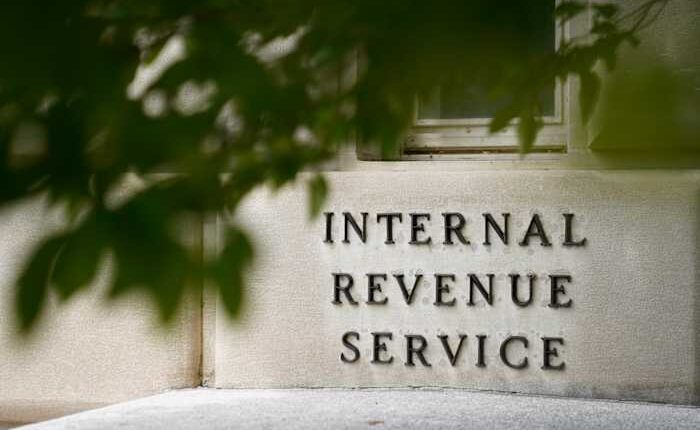
IRS officials revealed that the agency has successfully recovered $4.7 billion in unpaid taxes and illicit gains following a substantial influx of funding from the Democrats’ key legislation on taxes, climate, and health in 2022. This accomplishment was highlighted by the IRS leadership on Thursday.
Amidst the upcoming change in congressional leadership to a Republican majority, there is an impending review and scrutiny expected from the GOP regarding the significant financial support provided to the IRS by the Democrats. The Republicans have persistently advocated for the rollback of the substantial funding allocated to the agency.
IRS leadership, meanwhile, is hoping to justify saving the funding the agency already has.
Danny Werfel, the IRS Commissioner, shared during a press briefing that the enhancements implemented within the agency under his tenure will facilitate a smooth transition for the incoming administration and the newly established Republican-led Congress in executing their objectives, particularly in the extension of the 2017 Tax Cuts and Jobs Act.
Republicans plan to renew some $4 trillion in expiring GOP tax cuts, a signature domestic achievement of Trump’s first term and an issue that may define his return to the White House.
“We know there are serious discussions about a major tax bill coming out of the next Congress,” Werfel said, “and with the improvements we’ve made since I’ve been here, I’m quite confident the IRS will be well positioned to deliver on whatever new tax law that Congress passes.”
Tax collections announced Thursday include $1.3 billion from high-income taxpayers who did not pay overdue tax debts, $2.9 billion related to IRS Criminal Investigation work into crimes like drug trafficking and terrorist financing, and $475 million in proceeds from criminal and civil cases that came from to whistleblower information.
The IRS also announced Thursday that it has collected $292 million from more than 28,000 high-income non-filers who have not filed taxes since 2017, an increase of $120 million since September.
Despite its gains, the future of the agency’s funding is in limbo.
The IRS originally received an $80 billion infusion of funds under the Inflation Reduction Act though the 2023 debt ceiling and budget-cuts deal between Republicans and the White House resulted in $1.4 billion rescinded from the agency and a separate agreement to take $20 billion from the IRS over the next two years and divert those funds to other nondefense programs.
In November, U.S. Treasury officials called on Congress to unlock $20 billion in IRS enforcement money that is tied up in legislative language that has effectively rendered the money frozen.
The $20 billion in question is separate from another $20 billion rescinded from the agency last year. However, the legislative mechanism keeping the government afloat inadvertently duplicated the one-time cut.
Treasury officials warn of dire consequences if the funding is effectively rescinded through inaction.
Trump last week announced plans to nominate former Missouri congressman Billy Long, who worked as an auctioneer before serving six terms in the House of Representatives, to serve as the next commissioner of the IRS. Democrats like Sen. Ron Wyden (D-Ore.) have called Long’s nomination “a bizarre choice” since Long “jumped into the scam-plagued industry involving the Employee Retention Tax Credit.”
Trump said on his social media site that “Taxpayers and the wonderful employees of the IRS will love having Billy at the helm.”
Werfel’s term is set to end in 2027, and he has not indicated whether he plans to step down from his role before Trump’s inauguration. Trump is permitted to fire Werfel under the law.
Copyright 2024 The Associated Press. All rights reserved. This material may not be published, broadcast, rewritten or redistributed without permission.
















